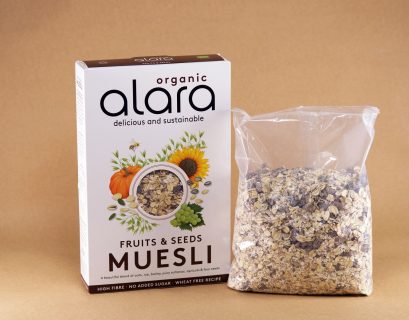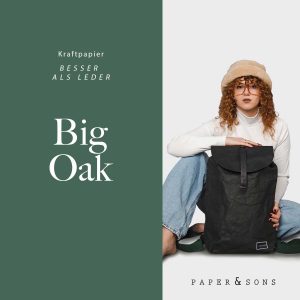In the realm of sustainable fashion, People Tree stands as a pioneer and cultivator of ethical practices, weaving a narrative of style, transparency, and social responsibility. Since its inception, People Tree has been at the forefront of the fair trade and sustainable fashion movement, championing environmentally conscious practices and fostering positive social impact. This review delves into the essence of People Tree, exploring its commitment to sustainability, fair trade principles, and the transformative impact it has made on the fashion industry.
Fair Trade Principles and Ethical Practices: At the heart of People Tree’s identity is a commitment to fair trade principles and ethical practices. Established in 1991, the brand has been a trailblazer in promoting fair wages, safe working conditions, and empowering marginalized communities in the fashion supply chain. People Tree partners with artisans, farmers, and producers in developing countries, creating a network that upholds the principles of fairness, equality, and respect for workers’ rights.
The brand’s dedication to ethical practices extends beyond mere compliance, as evidenced by its adherence to recognized fair trade standards. People Tree is a member of the World Fair Trade Organization (WFTO), an international community of businesses committed to fair trade principles. This membership underscores the brand’s ongoing commitment to ethical sourcing and production.
Sustainable and Organic Materials: People Tree’s commitment to sustainability is reflected in its careful selection of materials. The brand actively incorporates organic cotton, Tencel lyocell, and other sustainable fibers into its collections. Organic cotton, in particular, is a cornerstone of People Tree’s commitment to reducing environmental impact. By avoiding synthetic pesticides and embracing organic farming methods, the brand supports soil health and biodiversity while minimizing harm to farmers and ecosystems.
Tencel lyocell, derived from sustainably sourced wood pulp, is another key material choice for People Tree. Known for its eco-friendly production process, Tencel offers a soft and versatile fabric while aligning with the brand’s commitment to minimizing its ecological footprint.
Artisan Craftsmanship and Handmade Techniques: People Tree celebrates artisan craftsmanship and traditional handmade techniques, fostering a connection between consumers and the skilled individuals who create the garments. The brand collaborates with artisans in countries such as Bangladesh, Nepal, and India, preserving traditional skills while providing fair and sustainable employment opportunities.
Handmade techniques, including hand weaving, block printing, and hand embroidery, contribute to the uniqueness of People Tree’s designs. Each garment becomes a testament to the artistry and skill of the artisans involved, fostering a sense of appreciation for traditional craftsmanship.
Transparency and Supply Chain Visibility: People Tree takes pride in its commitment to transparency, providing consumers with insights into its supply chain and production processes. The brand’s website features detailed information about the artisans, farmers, and producers involved in the creation of each garment. This transparency not only aligns with fair trade principles but also empowers consumers to make informed choices about the origin and impact of their purchases.
People Tree’s dedication to supply chain visibility is exemplified through its support of the Fair Trade Guaranteed Cotton Program. By directly connecting consumers with the cotton farmers, the brand ensures fair compensation for the farmers’ labor and contributes to the empowerment of agricultural communities.
Timeless Designs and Slow Fashion Philosophy: People Tree’s designs embody a timeless aesthetic that transcends fleeting trends, encouraging consumers to adopt a slow fashion philosophy. The brand emphasizes classic silhouettes, versatile pieces, and enduring styles that resist the disposable nature of fast fashion. This approach aligns with People Tree’s commitment to sustainability, as garments are intended to be cherished and worn over multiple seasons.
The brand’s dedication to timeless designs encourages conscious consumerism, urging individuals to build a curated and sustainable wardrobe rather than succumbing to the pressures of constant trend cycles. This approach fosters a deeper connection to the garments and promotes a more mindful approach to fashion.
Circular Fashion Initiatives: People Tree actively engages in circular fashion initiatives, encouraging customers to extend the lifecycle of their garments. The brand embraces the concept of “slow fashion activism,” urging consumers to repair, recycle, and upcycle their People Tree garments. By providing information on garment care and repair, the brand empowers individuals to actively participate in reducing fashion waste.
Furthermore, People Tree actively collaborates with partners to repurpose and recycle garments, contributing to a circular economy. This commitment to circular fashion aligns with the brand’s overarching goal of minimizing its environmental impact and promoting responsible consumption.
Inclusive Sizing and Diversity: People Tree embraces inclusivity by offering a range of sizes, ensuring that ethical and sustainable fashion is accessible to a diverse audience. The brand recognizes the importance of representation in the fashion industry and features models of different ethnicities, body types, and backgrounds in its campaigns. This commitment to diversity and inclusivity aligns with People Tree’s ethos of fairness and equality.
By offering inclusive sizing and showcasing diverse representation, People Tree challenges industry norms and promotes a more inclusive vision of beauty and style. This approach reinforces the brand’s dedication to social responsibility and ethical fashion that resonates with a broad and diverse audience.
Educational Initiatives and Advocacy: People Tree actively engages in educational initiatives and advocacy, using its platform to raise awareness about sustainable and ethical fashion. The brand’s blog features articles, insights, and information about fair trade practices, sustainable materials, and environmental issues. By providing educational content, People Tree fosters a community of informed consumers who are empowered to make conscious choices.
Additionally, People Tree collaborates with organizations and advocates for policies that support fair trade, ethical production, and sustainability within the fashion industry. This commitment to advocacy extends the brand’s impact beyond its own operations, contributing to broader efforts to transform the fashion landscape.
Conclusion: People Tree stands as a shining example of ethical fashion, demonstrating that style and sustainability can coexist harmoniously. Through its commitment to fair trade principles, transparent supply chains, and sustainable materials, People Tree has cultivated a brand that transcends fashion trends, embracing a holistic approach to responsible consumerism.
Choosing People Tree goes beyond acquiring clothing; it is a conscious decision to support a brand that values people and the planet. As a pioneer in sustainable fashion, People Tree continues to inspire individuals to reimagine their relationship with clothing and adopt a mindful approach to their fashion choices.
In a world where the fashion industry is increasingly scrutinized for its environmental and social impact, People Tree stands tall as a beacon of ethical excellence, proving that fashion can be a force for positive change. The brand’s commitment to fair trade, sustainability, and inclusivity paves the way for a more compassionate and responsible fashion future.


















